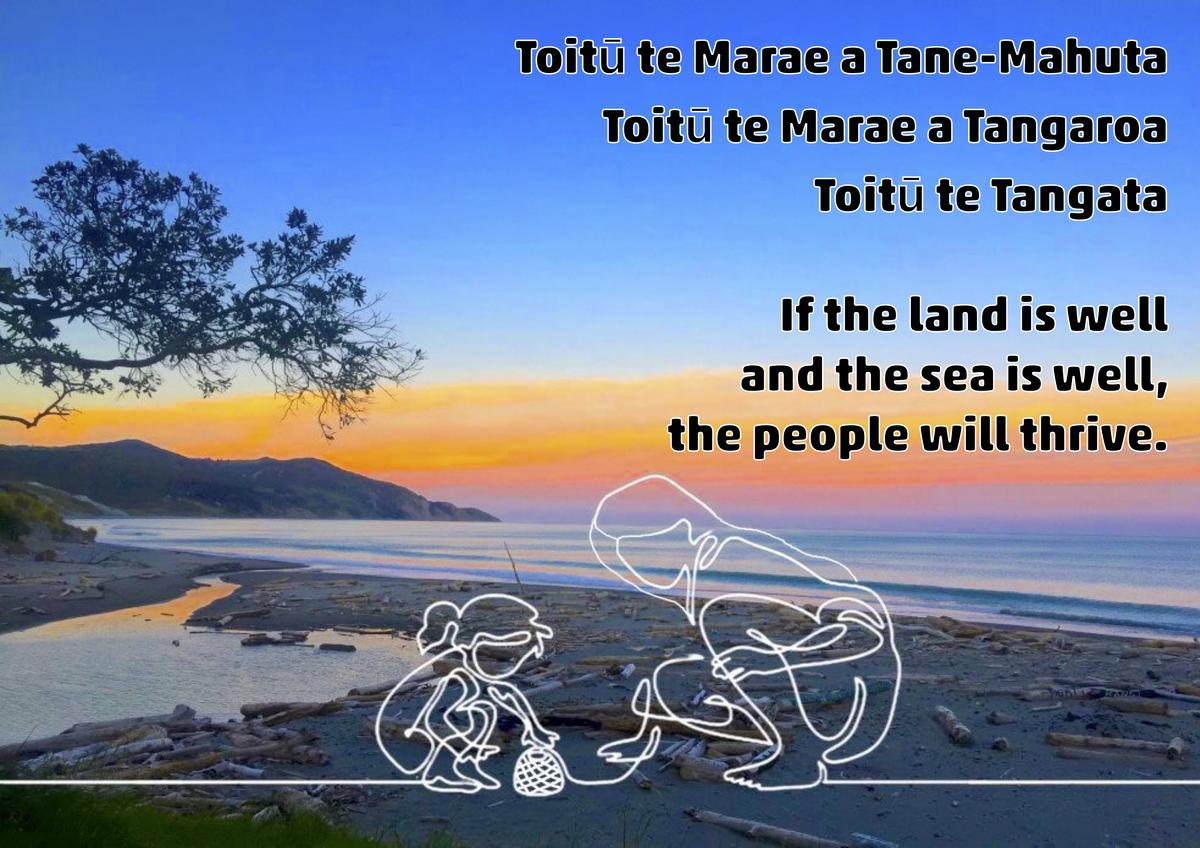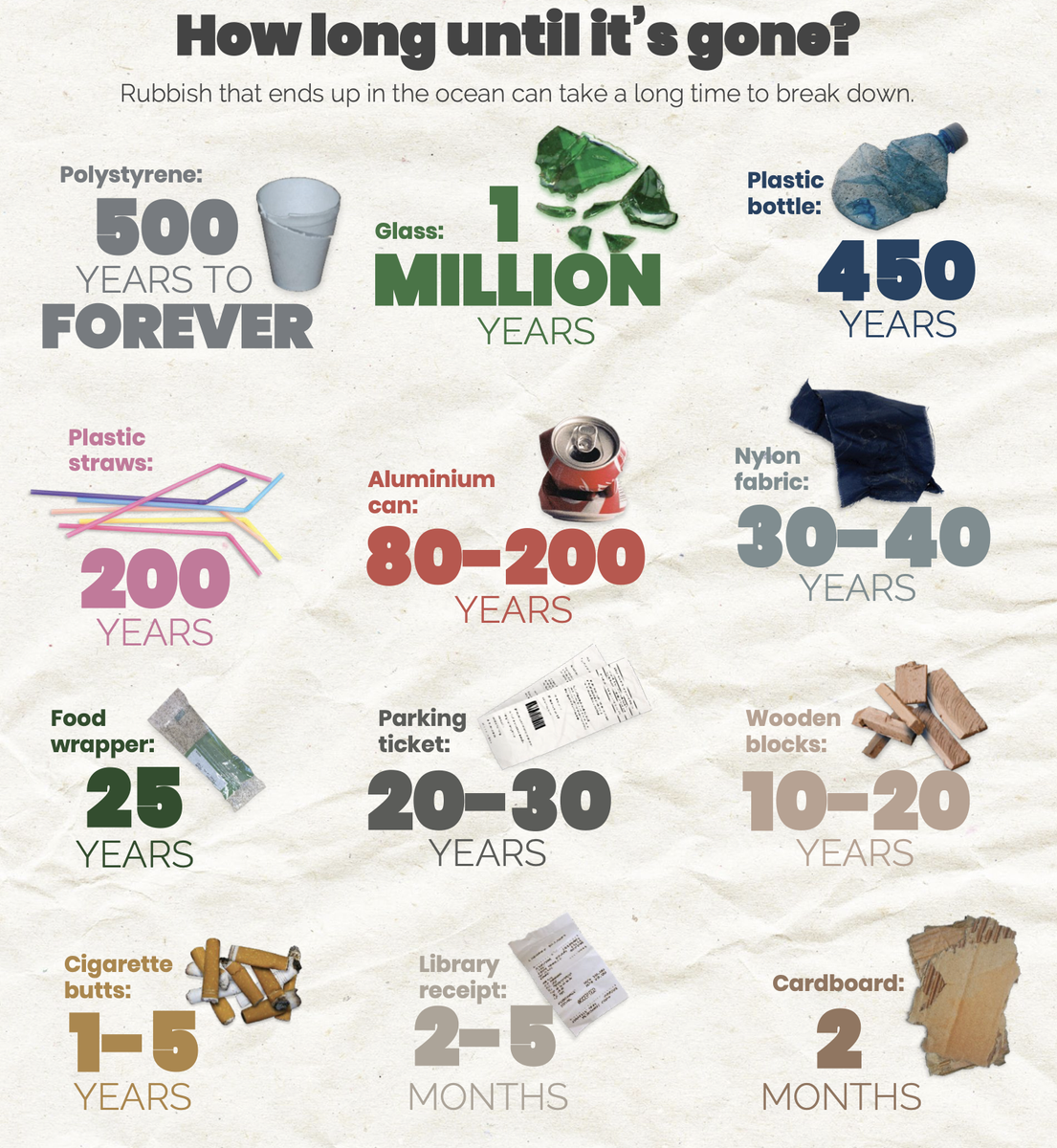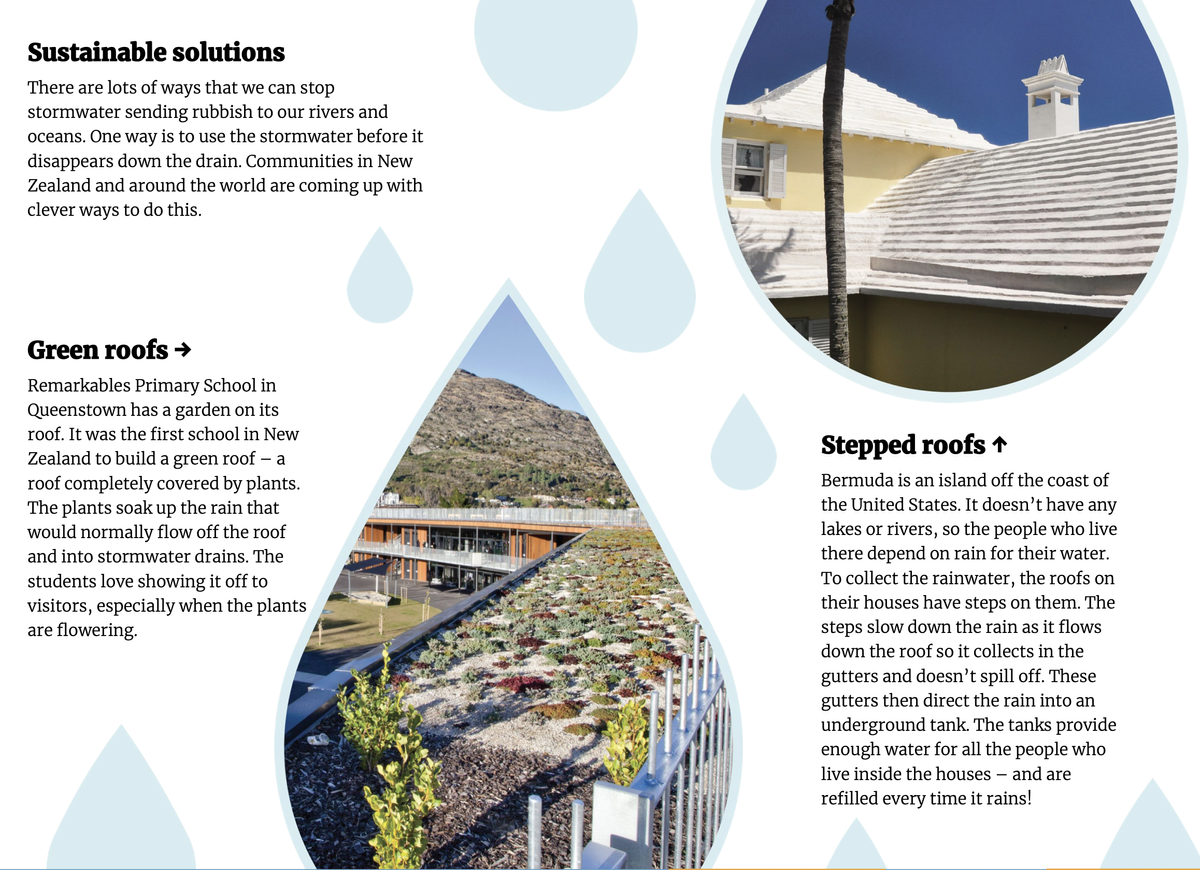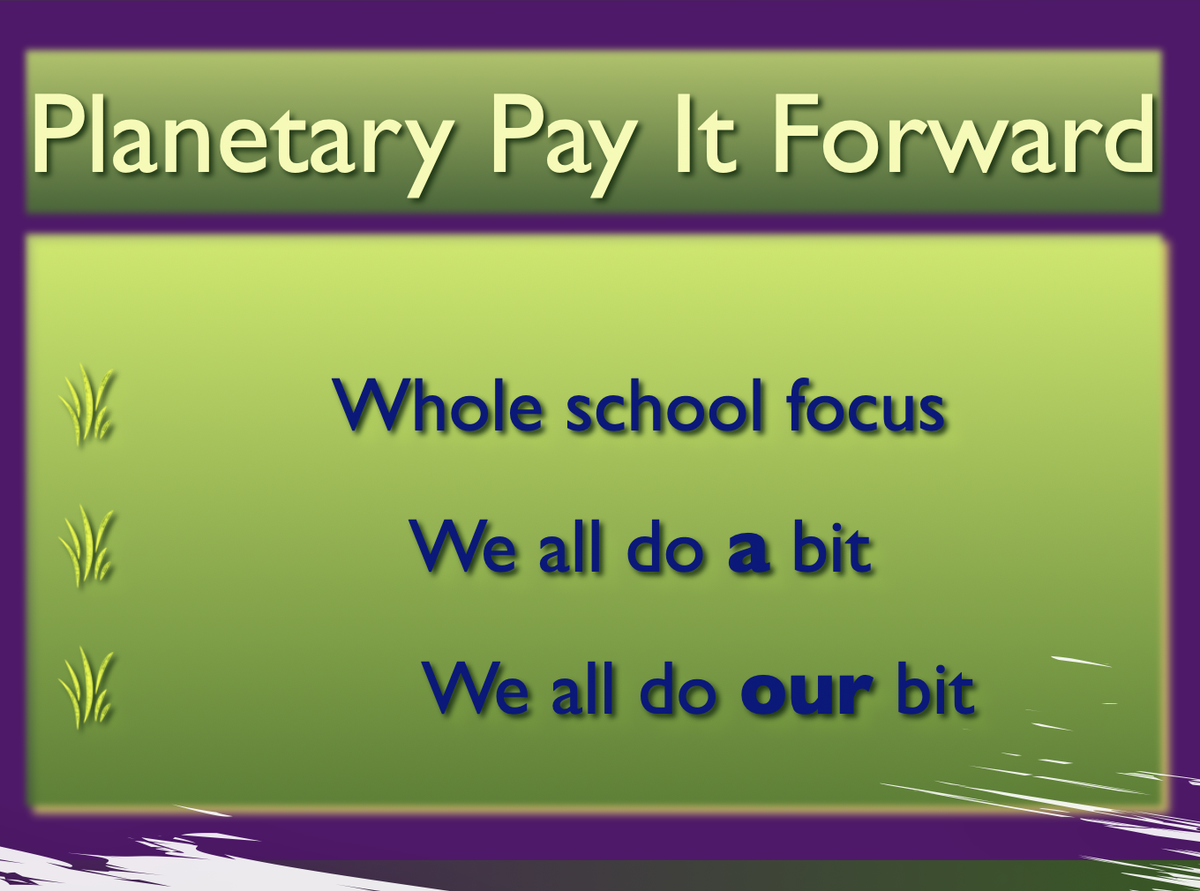WHS Whakatauk:
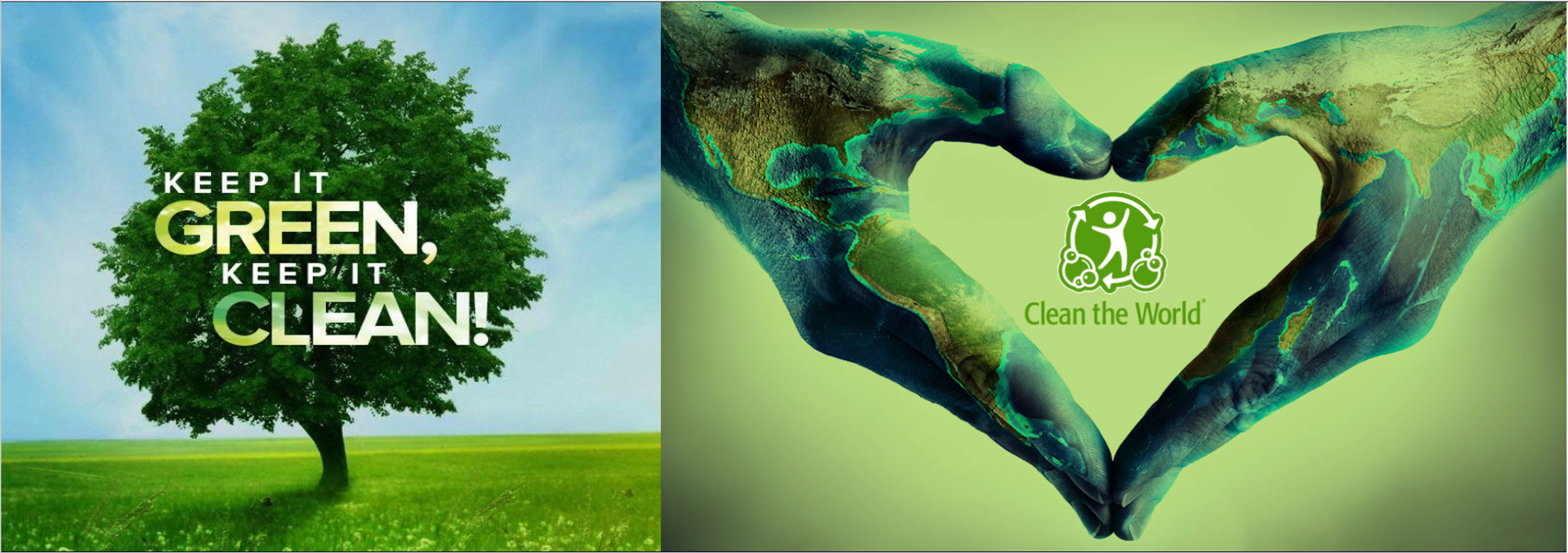
This year we are reviewing all those things that make Western Heights what we are.
Our Vision is Ā Tātou Tamariki, Ō Tātou Whenua, Ka Ora Te Āpōpō - Our Children, Our Land, For Our Future.
This was arrived at after lots of consultation with our community, staff and children, as well as kaumatua from local iwi.
We take the values of our Vision a step further with our Whakatauki - treasured saying.
It is Toitu te Marae a Tane-Mahuta, Toitu te Marae a Tangaroa, Toitu te Tangata - If the land is well and the sea is well, the people will thrive.
We take Tangaroa to encompass all water forms. In this interpretation, our whakatauki encourages us to look after all waterways and water in all its forms.
We cannot live without fresh water; it's the lifeblood of our planet. We need to respect our waterways by keeping rubbish, waste and plastic out of them.
Recently I saw a TV3 News story that shared some horrific new research:
* 45% of all waterways in New Zealand are unswimmable.
* 68% of groundwater sites are undrinkable
* 66% of waterbirds are under threat
* 48% of waterways are inaccessible to migratory fish
* 45% of lakes are deteriorating in terms of health
* 82% of waterways suffered increased bacterial contamination
* 51% of waterways suffered increased nitrate contamination
Worst of all, 94% of waterways in Northland were infected with fecal matter and unfit for swimming in.
Local Northland iwi are undertaking a huge programme to try to address this problem - aiming to undo the damage done.
Our aim at Western Heights is to educate our children to love and care for our waterways and hopefully help avoid them getting into such dire states.
Have you ever wondered what happens to all the water after it rains?
When it rains, water that falls on grass or soil normally soaks into the ground. Water that lands on hard surfaces, such as roofs, roads, or waterloggedsoil, can’t drain away. This is called stormwater.
In rural areas, stormwater runofffinds its way into streams and rivers. In towns and cities, it goes down gutters and into drains. From there, it travels through underground pipes to be released into rivers or the sea. Stormwater isn’t cleaned, so any rubbish it collects as it goes down a drain will end up polluting the environment.
When it gets to the ocean, the outlook is bleak. We know the damage a simple plastic straw can do, and any straw that reaches the ocean is there for up to 200 years. Clearly, we need to keep these rubbish items out of our drains, out of our stormwater, and out of of waterways and oceans.
There are other things we can do to help protect our stormwater systems.
This year I decided to do something about my health, motivated in part by my new Life Insurance company, AIA. One of the changes my wife and I have made is to get out and walk - every day that we can. And one of the changes I have made with my walking is to clear stormwater drains as I go, wherever I can. On one walk, I realised the task was beyond me, so I redid the walk, accompanied this time by my home rubbish bin, collecting as I went. It did lead to a few strange looks - I think one lady thought I was making off with someone else's bin.
I'm not suggesting you all start walking the neighbourhood with your Council bin in tow, but as per the slide below that we share with all new whānau, we can all do a bit, by all doing our bit.

